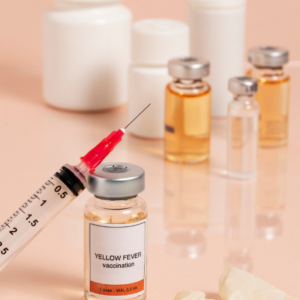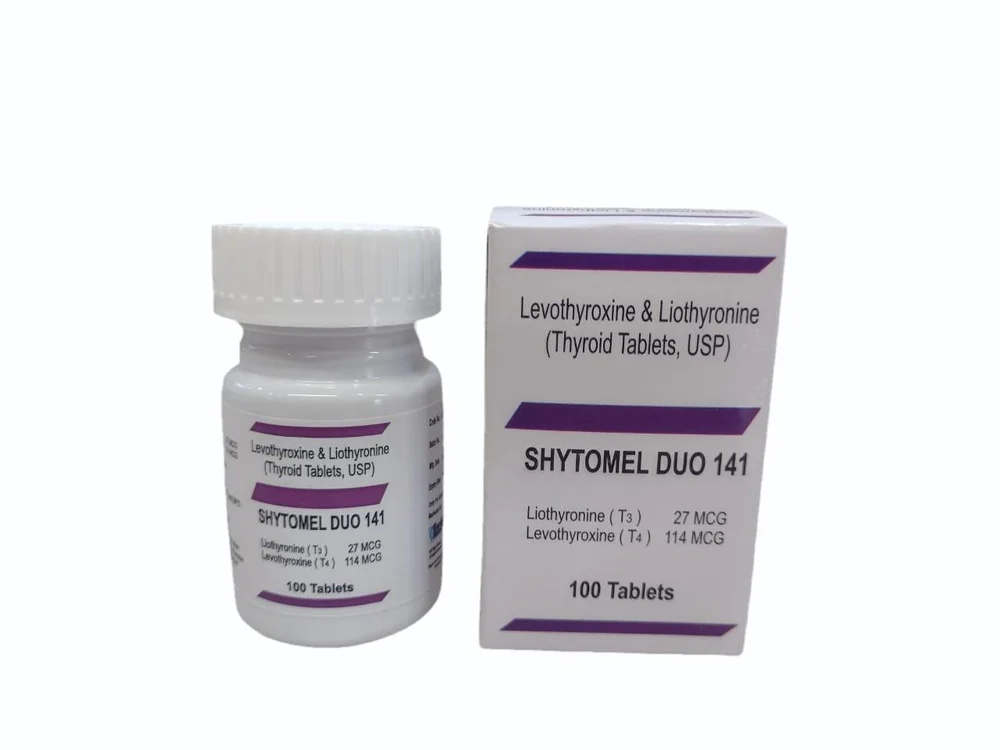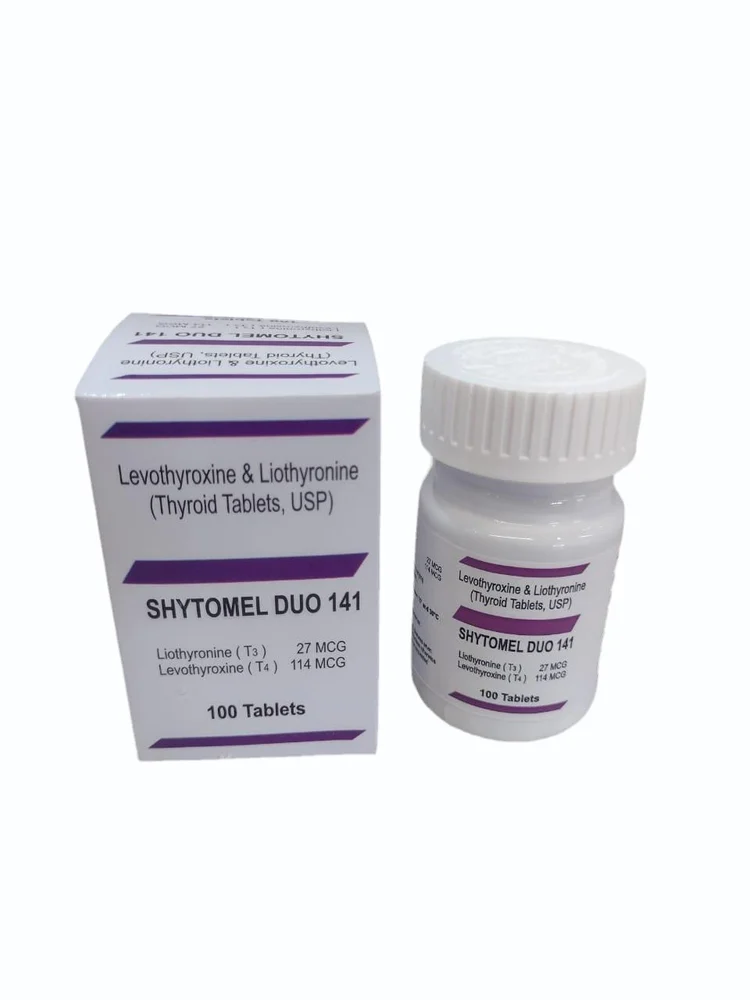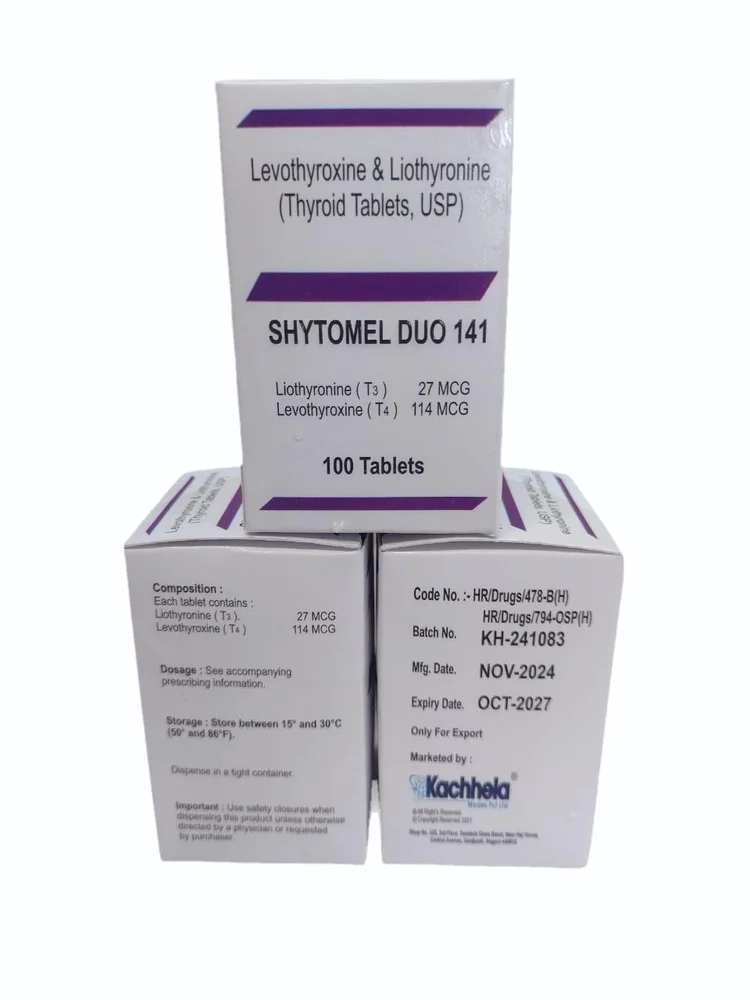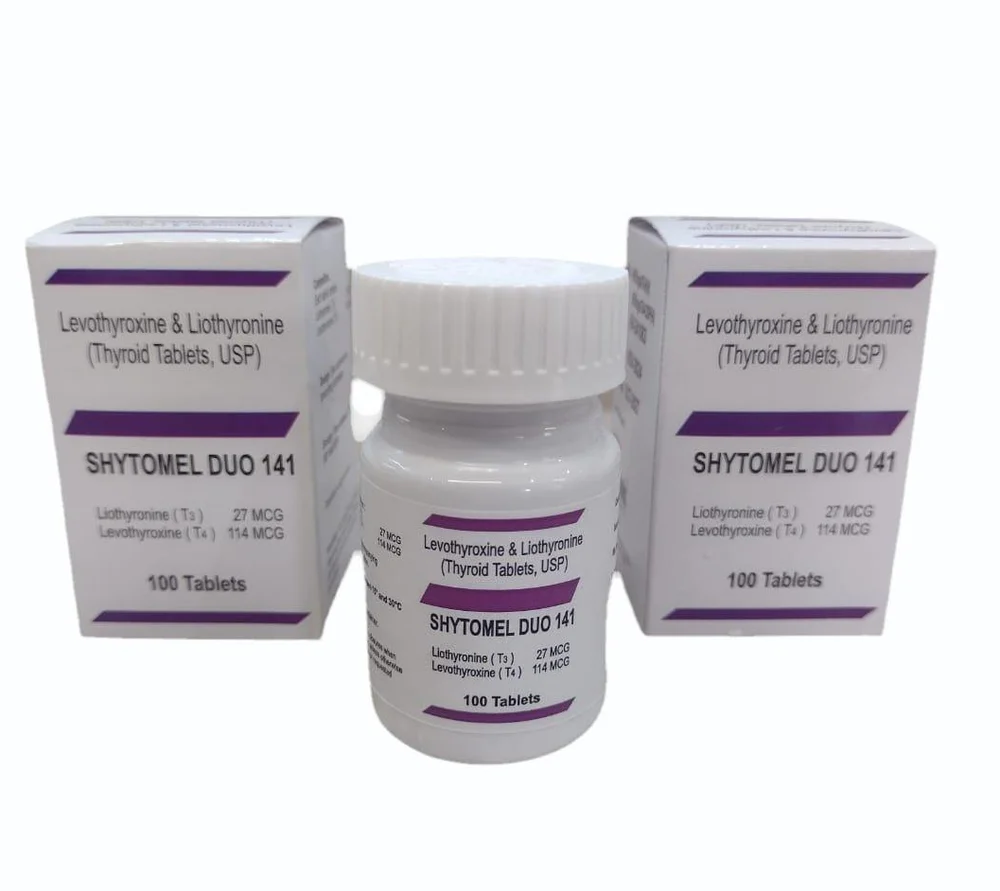Shytomel Duo 141mcg
| Package | Per tablet | Savings | Price |
|---|---|---|---|
| 600 tablets | $0.59 | $115.58 | $470.58 $355 |
| 500 tablets | $0.61 | $88.15 | $392.15 $304 |
| 400 tablets | $0.62 | $65.72 | $313.72 $248 |
| 300 tablets | $0.66 | $38.29 | $235.29 $197 |
| 200 tablets | $0.71 | $15.86 | $156.86 $141 |
| 100 tablets | $0.80 | – | $78.43 |
What is this medicine?
SHYTOMEL DUO 141 mcg is a combination thyroid hormone replacement therapy. It typically contains Liothyronine (T3) and Levothyroxine (T4). This medicine is used to treat hypothyroidism (an underactive thyroid). It helps restore normal thyroid hormone levels in the body, which are important for maintaining metabolism, energy levels, and overall health.
What should I tell my health care provider before I take this medicine?
They need to know if you have any of these conditions:
-
adrenal gland problems like Addison’s disease
-
diabetes
-
heart disease or history of heart attack
-
high blood pressure
-
osteoporosis or low bone mineral density
-
pituitary gland disease
-
any recent surgery
-
an unusual or allergic reaction to liothyronine, levothyroxine, thyroid hormones, other medications, foods, dyes, or preservatives
-
pregnant or trying to get pregnant
-
breast-feeding
How should I use this medicine?
Take this medicine by mouth with a glass of water. It is best taken on an empty stomach, 30 to 60 minutes before breakfast. Follow the dosing schedule and instructions provided by your doctor. Do not take more than directed.
Overdosage: If you think you have taken too much of this medicine, contact a poison control center or emergency room right away.
What if I miss a dose?
If you miss a dose, take it as soon as possible. If it is almost time for your next dose, skip the missed dose and return to your regular dosing schedule. Do not take double or extra doses.
What may interact with this medicine?
-
antacids and calcium supplements
-
iron supplements
-
cholesterol-lowering agents like cholestyramine or colesevelam
-
diabetes medications (insulin or oral)
-
blood thinners like warfarin
-
seizure medications (e.g., phenytoin, carbamazepine)
-
antidepressants
-
estrogen-containing products
-
soy products or high-fiber diets
-
other thyroid medications
This list may not include all possible interactions. Provide your health care provider with a list of all the medicines, supplements, or herbal products you use.
What should I watch for while using this medicine?
Visit your doctor regularly to monitor your thyroid hormone levels. Symptoms of over-treatment may include anxiety, insomnia, sweating, or heart palpitations. Let your doctor know if you experience chest pain or rapid heart rate.
If you become pregnant or plan to become pregnant, inform your doctor. Your dose may need adjustment during pregnancy.
Avoid switching between brands or types of thyroid medication unless directed by your doctor, as dosages can vary.
Tell any healthcare provider (including dentists) that you are taking this medicine before any surgery or treatment.
What side effects may I notice from this medicine?
Side effects that you should report to your doctor or health care professional as soon as possible:
-
chest pain
-
irregular or rapid heartbeat
-
shortness of breath
-
excessive sweating
-
nervousness or irritability
-
significant weight loss
-
muscle weakness
-
menstrual irregularities
Side effects that usually do not require medical attention (report if persistent or bothersome):
-
headache
-
mild hair loss (usually temporary)
-
increased appetite
-
heat intolerance
-
mild tremors
-
difficulty sleeping
This list may not describe all possible side effects.
Where should I keep my medicine?
Keep out of the reach of children.
Store at room temperature, between 20°C to 25°C (68°F to 77°F). Protect from light and moisture. Do not use expired medication. Safely discard unused medicine if no longer needed.











